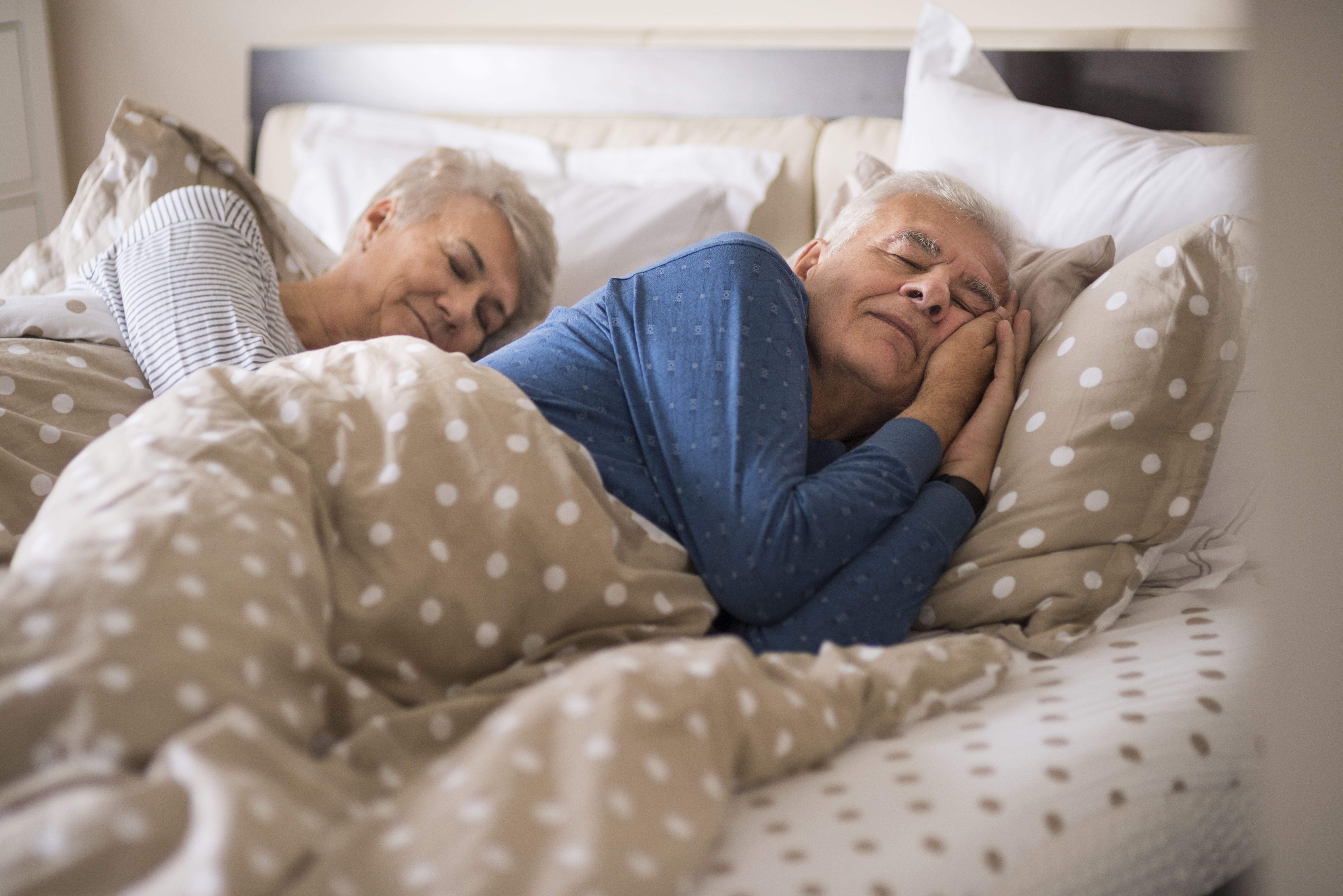A good night’s sleep is essential and can dramatically affect our mental and physical health. However, many seniors struggle to get a full eight hours rest amid prescriptions, medical conditions, or even new environments. In a quest for senior health and wellness, it’s vital to develop a daily routine where sleep is prioritized. If you or a loved one is looking to improve the duration or quality of your sleep, consider the following tips.
1. Develop Consistent Routines
Actively cultivating a healthy sleep routine will make it so much easier to consistently get the sleep you need. By creating habits and cues that promote sleep, it becomes easier to fall asleep quickly and stay asleep throughout the night.
Try and think beyond the basics of going to bed at the same time every night (although this is very important) and plan a small routine of activities like taking a bath, enjoying a warm beverage, reading a book, or listening to music.
2. Keep as Active as Possible
Studies have found that proper exercise can alleviate sleep-related problems and help you get an adequate amount of rest. But why? Well, exercise is responsible for raising your core body temperature, which signals the body clock that it's time to be awake. After about 30 to 90 minutes, the core body temperature starts to fall and the decline helps to facilitate sleepiness.
For many seniors, moderate exercise increases sleep quality by reducing sleep onset – or the time it takes to fall asleep – and decreases the amount of time they lie awake in bed during the night. For seniors with limited mobility, there are various exercise resources that outline strength-training, flexibility, and cardiovascular activities that individuals of all abilities can participate in. If you’re looking for new activities, refer to our blog post, Four Activities for Seniors With Mobility Challenges.
3. Address the Stress
Often, the biggest enemy in getting a good night’s sleep is the stress felt throughout the day. High levels of stress impair sleep by prolonging how long it takes to drift off and fragmenting sleep when it does happen. Sleep loss triggers our body's stress response system, leading to an elevation in stress hormones, namely cortisol, which further disrupts sleep: It’s a vicious cycle!
In order to address the stress immediately, try eliminating stress-inducing factors or partaking in activities designed to reduce stress. Finding outside resources for support, or meeting with a therapist could also be helpful.
4. Talk to Your Primary Physician
Are you or your loved one feeling “sleepy” during the day? Sometimes, fatigue can be the first sign that something is wrong in the body. For example, someone experiencing rheumatoid arthritis (a painful condition that affects the joints) will likely complain of fatigue.
According to the National Institute on Aging, additional medical problems and treatments that seniors experience, and that may add to fatigue include:
- Medical treatments such as chemotherapy and radiation
- Recovering from a major surgery
- Infections
- Chronic diseases like diabetes, heart disease, kidney disease, liver disease, thyroid disease, and chronic obstructive pulmonary disease (COPD)
- Untreated pain and diseases like fibromyalgia
- Anemia
- Sleep apnea and other sleep disorders
- Recent stroke
- Parkinson’s disease
- Taking medicines for nausea and pain
5. Limit Caffeine Intake Before Bed
Caffeinated products like soda or coffee can significantly impact a senior’s ability to fall asleep in the evening. One should focus on consuming these beverages earlier in the day to minimize any negative consequences when it comes time to sleep.
6. Eat a Healthy, Well-balanced Diet
Diet and nutrition can influence the quality of your sleep, and certain foods and drinks can make it easier or harder to get the sleep that you need. By eating healthier food, both low in sugar and refined carbohydrates, high in protein and vitamin dense, one can develop a sleep-friendly diet that also actively benefits overall wellness.
7. Limit Screen Time Before Bed
According to neurologists and sleep medicine specialists, looking at a screen before bed can reduce melatonin secretion, decrease REM sleep, and make the process of falling asleep more difficult. In fact, studies show two or more hours of screen time in the evening can seriously disrupt the melatonin surge needed to fall asleep.
Consider turning off all electronic devices at least one hour before sleep, at a minimum. Try reading a book, taking a bath or doing some other type of relaxing activity.
Improve Sleep for Better Senior Health and Wellness
To achieve a healthy sleep pattern, it’s so important to develop good habits, just as with any other aspect of your wellbeing. Getting into a routine of going to bed at the same time every night, eating well and remaining active will all help you to get into the mindset for a full, blissful night’s sleep.




